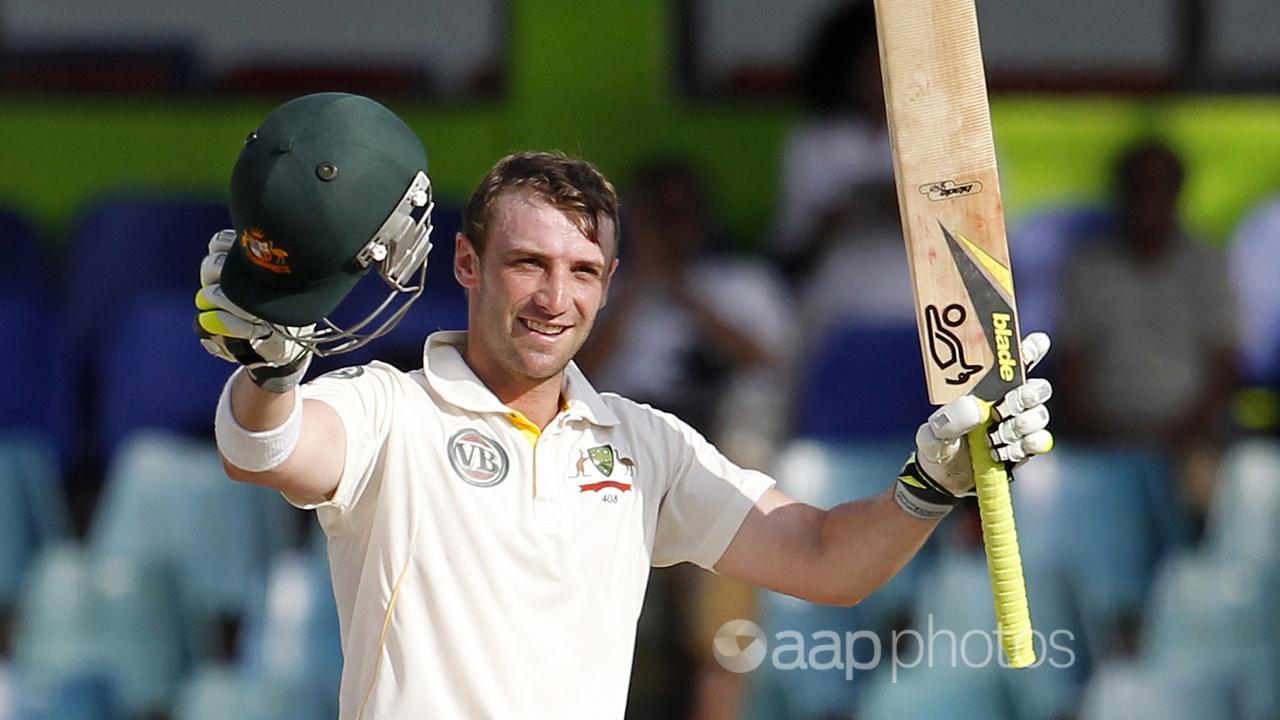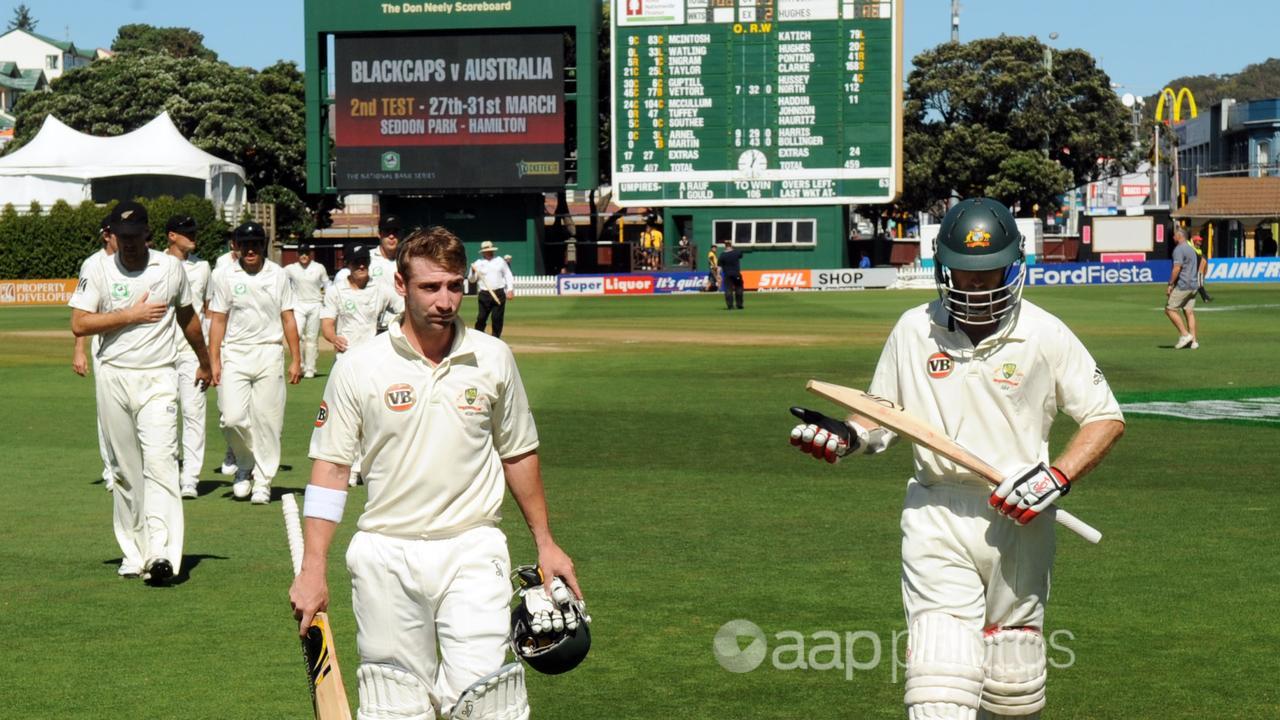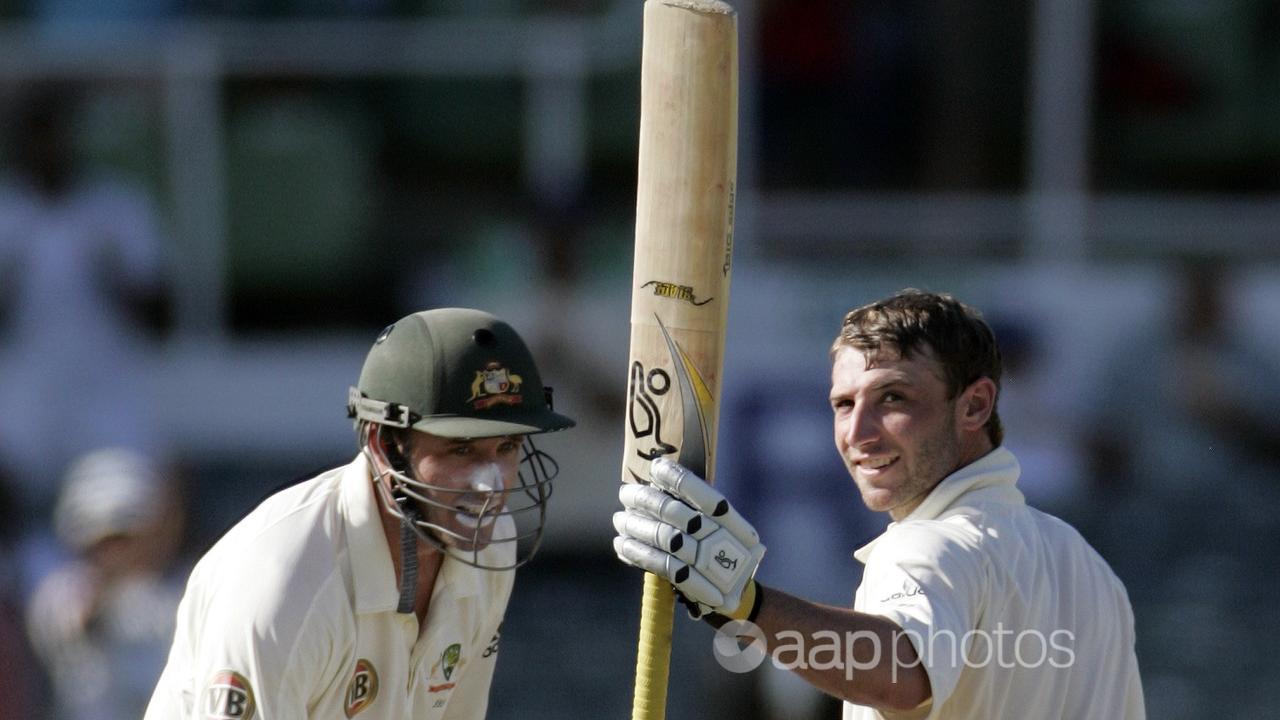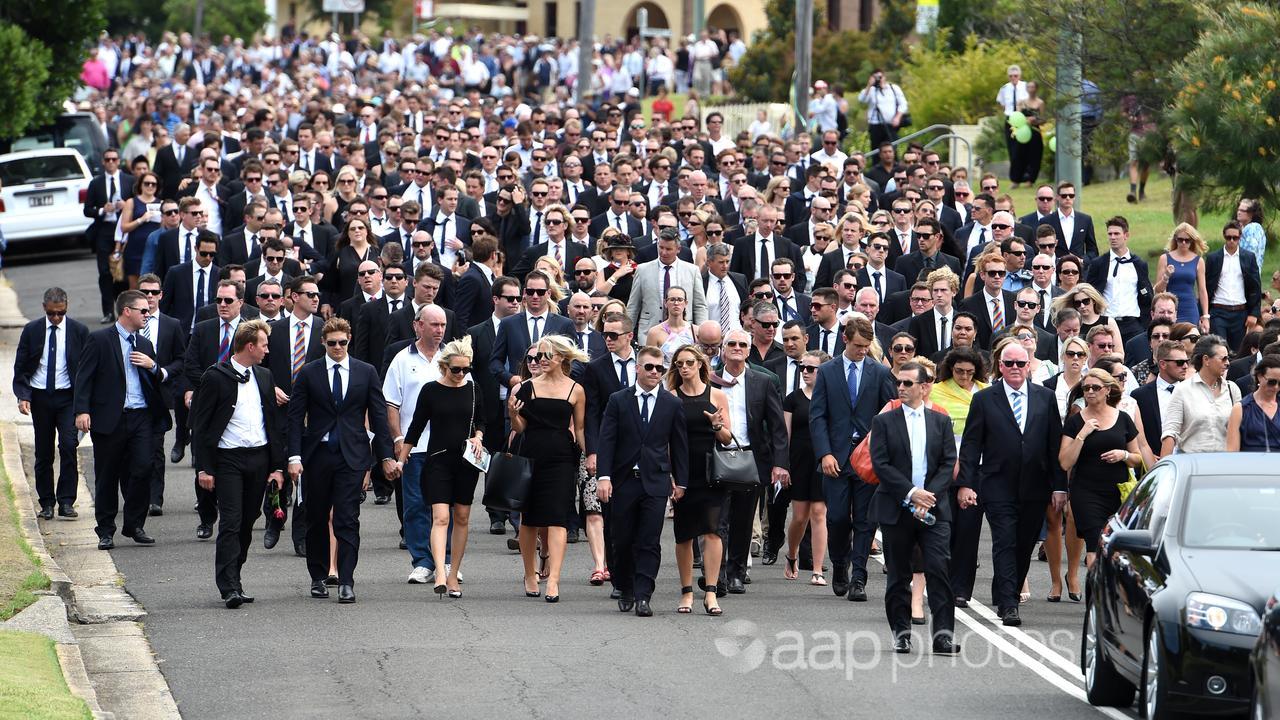Phillip Hughes’ death was felt as much in the Adelaide club room at East Torrens as it was in the Australian Test sheds.
So too, on the fields of farms around Macksville as in Sydney’s western suburbs where he lived for six years.
“Everyone thought he was their mate,” Tom Cooper tells AAP.
“Half the people didn’t even know him, but that sums him up.”
Cooper is one of the people who did know Hughes best.
The pair both grew up on the NSW north coast, and first played together in junior cricket representative systems as teenagers.
They crossed paths again playing in Sydney, before becoming teammates and housemates in Hughes’ later years at South Australia.

On the field their last partnership is officially recognised as unbroken, with Cooper the non-striker when Hughes was hit on the neck at the SCG 10 years ago on Monday.
“He’s not one of those blokes who felt he was too good for anything,” Cooper continues.
“The fact a few of his best mates in Adelaide are from his club side says a lot, and he would have only played a handful of games there.
“People often come and are too good for their club side. They are all about themselves. But not him.”
In Cooper’s mind, Hughes was a best friend and farmer who happened to be very good at cricket.
He is one of countless players to recount stories of how the left-hander would talk about his cows between overs, or what stud he might buy if he brought up another ton.
“He was that laid back and relaxed,” Hughes’ first NSW captain and Test opening partner Simon Katich says.

“To witness the two hundreds in Durban against that South African attack (in his second Test at age 20 in 2009), he was just at the peak of his powers.
“Between overs we were talking about his cows in Macksville more than we were (Dale) Steyn and (Morne) Morkel.”

In many ways, Hughes was a pioneer for professional cricketers pursuing life balance.
His first-class debut came at a time when welfare managers were being introduced, urging players to consider time after sport.
Hughes required no pushing. His dream was his own cattle farm, which he purchased as Four 0 Eight Angus on the NSW north coast.
A decade after his death, it is still operated by his family.
“He really felt he was a farmer,” Hughes’ batting coach and long-term mentor Neil D’Costa says.
“He was playing for Australia and showing cows at the Easter Show. This is unheard of for someone so young.
“I took him to a meeting once, it was frightful.
“Talking about artificial insemination with a guy. They knew everything, and then some.
“We got in the car and he was pumped and he said, ‘what do you reckon?’ And I said ‘you both disgust me’.
“But he said: ‘That’s how you make money cuz.’ He loved it.”
That love helped Hughes’ cricket.
When many believed he was treated harshly by Australia’s selectors, Hughes would return to his family and the farm.
Cooper recalls a time when the opener scored a century in a Sheffield Shield game, but his highlight of the day was his heifer winning an award at the Macksville Show.
“He’d just scored a first-class hundred, and it was just like another day at the office,” Cooper said.
“But his heifer winning at the little Macksville show? ‘Get your dancing boots on, we’re going out to celebrate’.
“That was his happy place. And to just have that avenue outside of cricket, it didn’t matter if he scored a hundred, got a duck, got dropped, whatever.
“To me he was content if he never played cricket again, he would just go back to the farm and have the happiest life ever.”
Cricket has soldiered on since Hughes’ passing.
But Cooper looks only at the size of Hughes’ funeral, the globe-crossing travel of attendees and his lasting legacy as a tribute to a man far greater than a talented cricketer.

“He was just a genuine country bloke that had an exceptional talent of scoring runs,” Cooper said.
“There are so many stories. We’d just message each other all the time saying ‘haaaaaaaaaaaaaaaaaaaaaappy’.
“You know those type of people that everyone just likes? That was him.”



















